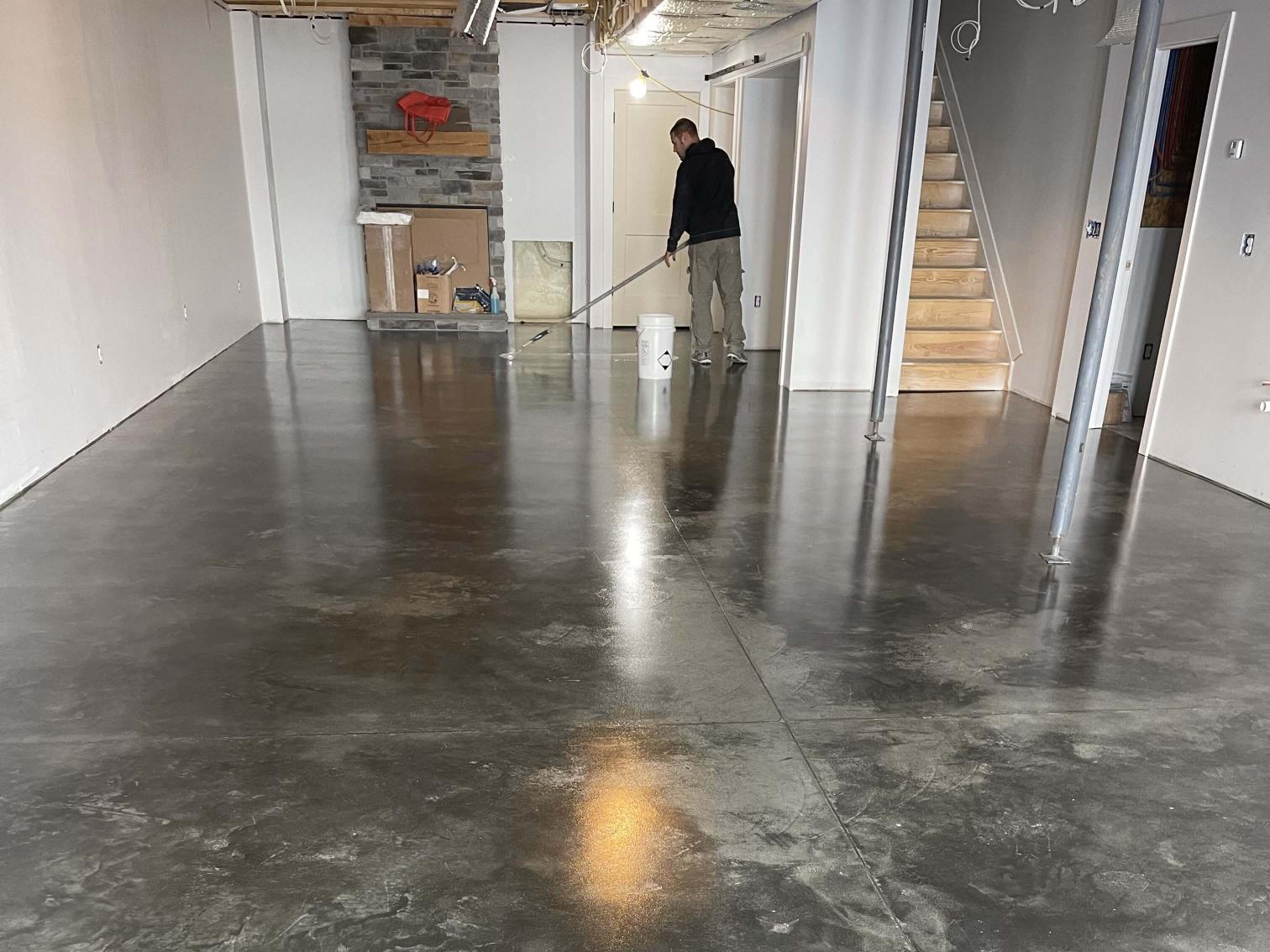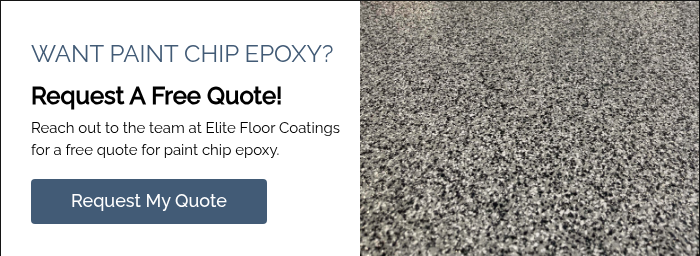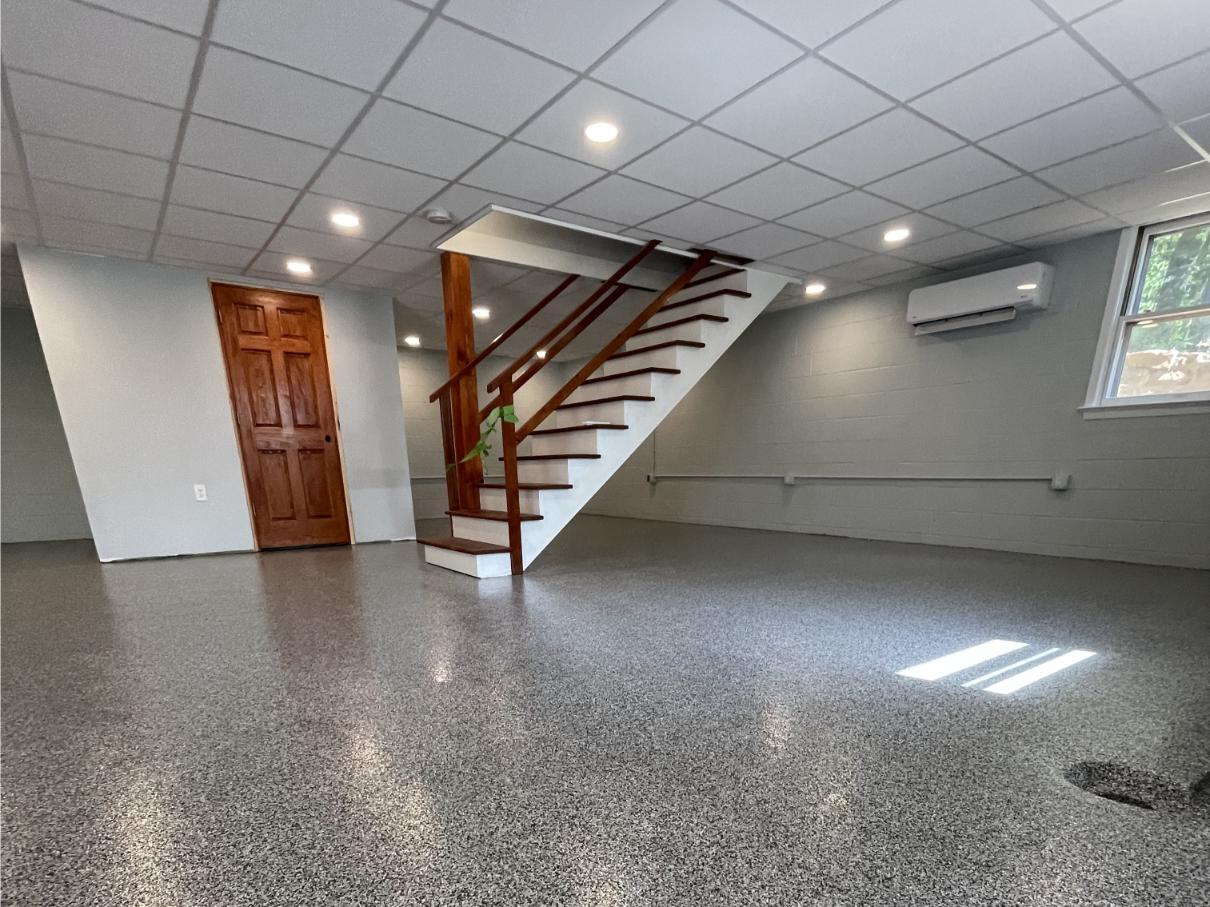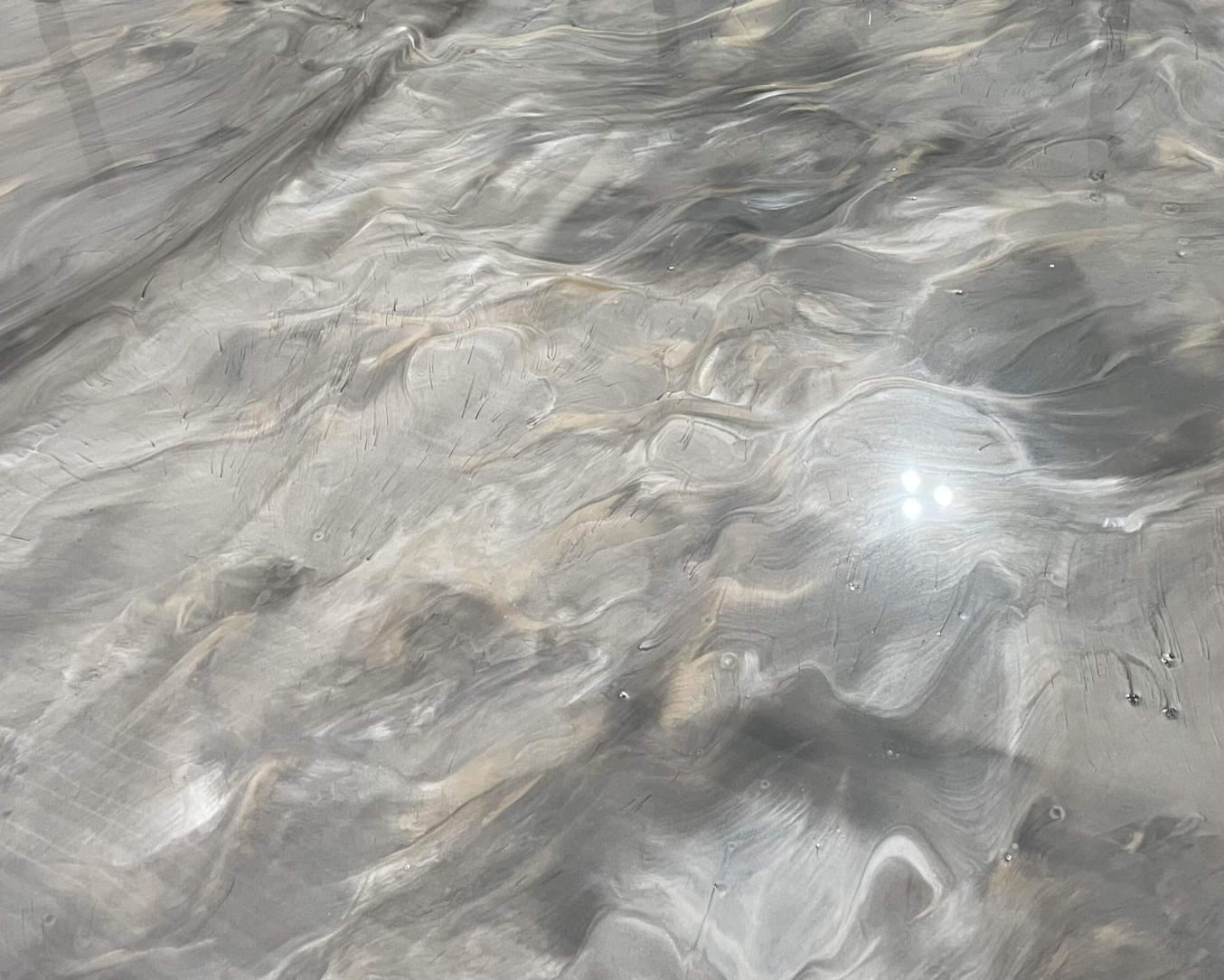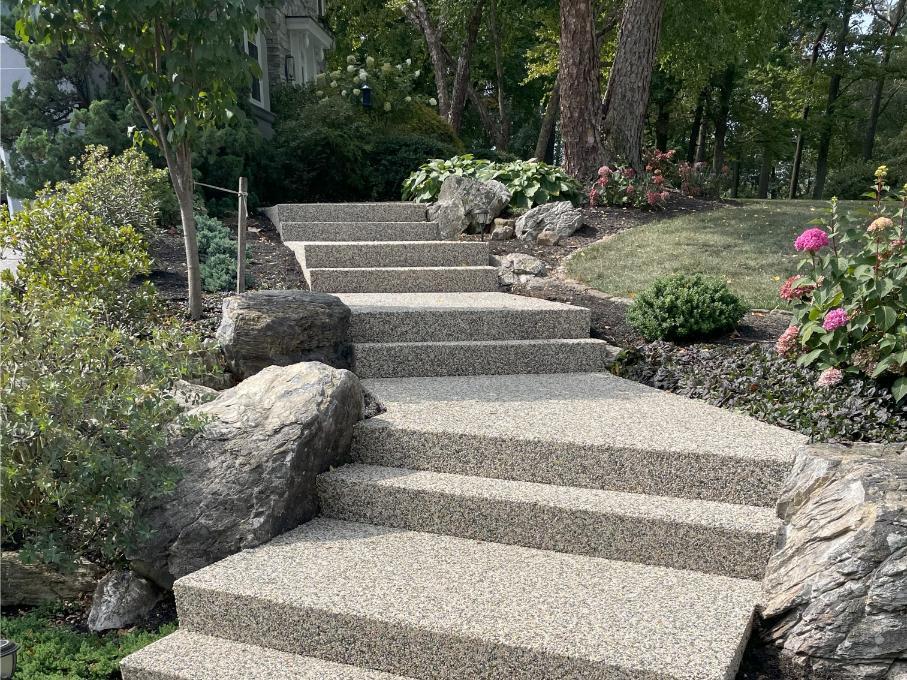Epoxy floors are pretty, but you aren't sure if they're safe. After all, epoxy floors are known for being smooth. Does a smooth floor mean a slippery floor? Suppose you do have an epoxy coating installed in your garage or basement. Will you need to be careful to prevent slipping?
Elite Floor Coatings has been coating concrete with epoxy for over 20 years. The concern about the slippiness of epoxy floors is one of the most common questions we receive. You aren't alone in wondering about epoxy floors being slippery.
When you've finished reading, you'll know which epoxy floors tend to be slippery and what can be used to prevent slipperiness.
Anything Will Be Slippery When Icy.
Ice is slippery. For outdoor coatings, if ice can form, there is a risk of slipping. Ice will be slippery for concrete, asphalt, gravel, and epoxies. When ice forms, it isn’t relevant whether or not the material beneath is an epoxy.
If you have an outdoor epoxy coating like river rock or acrylic cement, treat ice like any other outdoor surface. Apply ice melt to help dissolve the ice and to give grip to your shoes.
When It Isn't Icy, Every Epoxy Coating Is Different.
Sometimes, the concern with epoxy is about ice in the winter. However, just as often, homeowners are concerned about the smooth nature of an indoor epoxy. The reality is that every type of epoxy coating is different.
Let's take a look at each epoxy coating we install at Elite Floor Coatings.
Paint Chip Is Common In Garages, And Usually Needs Anti-Skid.
Paint chip can be used anywhere inside. One of the most common uses of paint chip epoxy is in garages, where slipping is a greater concern.
For garage applications, we often apply some anti-skid to the coating. Anti-skid is especially helpful at entryways, where you're transitioning from one floor to another.
.jpg?width=533&height=400&name=Paint%20Chip_Mercersburg%20Academy_Bathroom%20(3).jpg)
Paint chip epoxy is easy to clean when the floor doesn't have anti-skid. The floor can be a bit more slippery without anti-skid, but it will also be easier to clean. The tradeoff with anti-skid is the potential difficulty in cleaning.
Quartz Epoxy Is Naturally Anti-Skid, So It Isn't Too Slippery.
Quartz epoxy is most common in commercial settings like factories, warehouses, and assembly lines. However, some homeowners do choose quartz epoxy for interior concrete.
%20(1).jpg?width=534&height=400&name=Quartz%20Epoxy%20(Emmitsburg)%20(1).jpg)
Quartz is not a naturally slippery epoxy. This epoxy is comprised of natural quartz sand, which is colored sand we pitch into wet glue. The coating has some natural anti-skid already included. The natural lack of slipperiness is one reason quartz is more popular in commercial applications.
Metallic Epoxy Is On The Slick Side And Doesn't Use Traditional Anti-Skid.
Of all the interior epoxy coatings, metallic is the most slippery. Metallic coatings are beautiful, but they aren't the most durable coating. Unlike quartz, which has texture built into it, a metallic coating is entirely smooth. And unlike paint chip, which can have anti-skid added for grip, metallic coatings would be less visually appealing if anti-skid was added.
%20(4).jpg?width=533&height=400&name=Metallic%20(Greencastle)%20(4).jpg)
When slipping on a metallic epoxy surface is a concern, we apply a non-skid powder to the top coat. It creates a fairly uniform, hazy grip to the top, which aids in not slipping. It is very fine and cannot be seen. Since metallic floors see nothing greater than foot traffic, these non-skid powders are a great option.
River Rock Isn’t Usually Concerned With Slipping.
River rock epoxy is a coating for outdoor concrete. One of the coolest features of river rock is that the material is permeable. Water can pass through the river rock.
This type of epoxy is the least concerned with a water spill. The pervious nature of river rock is ideal for outdoor applications because ice is less likely to form on the surface.
.jpg?width=533&height=400&name=River%20Rock_Chambersburg%20(4).jpg)
There are some uses for river rock epoxy where anti-skid is preferred. An example would be the deck of a pool. If there is a preference for anti-skid, river rock can have blasting sand added to the coating to act as an anti-skid.
Acrylic Cement Can Be Slippery, Depending On The Sealer.
Acrylic cement is another option for outdoor concrete. The type of sealer used as a top coat will determine how slippery the acrylic cement will be. A popular option to limit the slipperiness of acrylic cement is a white oxide sealer.
.jpg?width=533&height=400&name=Acrylic%20Cement%20(Hagerstown).jpg)
Many Garage Floors Have Anti-Skid To Prevent Slipping.
Depending on where you have epoxy installed, you might not need to worry about how slippery the floor is. A showroom floor covered in large displays is not a place where people move quickly. A basement floor is unlikely to have slipping concerns.
The most common requests for anti-skid coatings come from garage applications. Additional grip is helpful when vehicles and tires are passing over the floor. Motorcycle garages, especially, need anti-skid. It also can't hurt to make the transition from your garage to your home a slightly more stable walk.
What To Know About Epoxy Flooring & Slipping
For many epoxy applications, the slipperiness of the epoxy is not a concern. However, in some instances, grip for shoes and tires is a concern. Every type of epoxy coating is different. Some types of epoxy are naturally grippy, while others are naturally smooth.
If you're concerned about slipping and grip, talk with your epoxy installer about your options for anti-skid coatings.
Want to learn more about epoxy floors? Discover if epoxy floors require any maintenance.
.png?width=1800&height=528&name=Elite%20Floor%20Coatings%20Header%20Logo%20With%20White%20Background%20(1).png)
